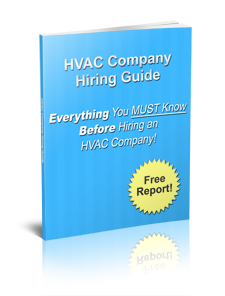The most important element of your new HVAC system is going to be the actual equipment that’s used to install it, so you need to know a little bit about that equipment before you decide which kind to use, and what HVAC contractor to hire to install it. But that doesn’t mean that you need to knows the ins and outs of every different kind of HVAC equipment either. You just have to know what to look for, and what questions to ask.
What’s the capacity?
The capacity of a furnace or air conditioning system is measured in BTUs and it will tell you how often your furnace will run and how much output it will have. A professional HVAC contractor will be able to tell you what capacity you need, or what is best for your situation. The capacity of your system is directly related to how large it is, and we’ve already discussed how important that is. It’s equally important that you deal with an HVAC company that knows the proper capacity you require.
What’s the sound level?
While you may not think that the noise coming from your HVAC system will be a big deal, you’ll soon change your mind once you can’t hear yourself over the racket in the backyard, or can’t sleep with that constant noise in the basement. If it’s a furnace that you’re installing, there is unfortunately no real rating system to go by to determine how loud it is. In this case, you’ll need to rely on your contractor and trust their knowledge. Make sure though, that you get a sound estimate in writing so that if it becomes really bad, you’ll be able to return it or get it fixed under warranty.
Air conditioners work a little bit differently. These units do have a rating for sound; a rating of 0 means that the sound is barely audible while a sound of 13 is extremely loud and shows that the air conditioner truly will be disruptive – to you and your neighbors, most likely.
The sound rating for air conditioners is measured in bels (much like decibels) and a 9-bel rating can be ten times louder than an air conditioner with an 8-bel rating; so don’t settle for one that’s one bel lower just because you want to save on price, it really will make a big difference! Normally, air conditioners have anywhere between an 8-bel and 9-bel sound rating, but you can find units as quiet as 6.8 bels.
What’s the energy efficiency?
Of course, making sure that your furnace or air conditioner is energy efficient will mean that you save money on your energy bills and that you’re helping the environment at the same time too. But how can you know that you’re getting an energy efficient unit?
The energy efficiency of furnaces and air conditioners are also measured differently from each other. Furnaces are given a measurement of Annual Fuel Utilization Efficiency (AFUE.) The higher a furnace’s AFUE rating, the more energy efficient it is. Most new furnaces have an AFUE rating of 78 to 97.
Air conditioners on the other hand, have their energy efficiency measured by the Seasonal Energy Efficiency Ratio (SEER.) The average SEER for newer air conditioners is anywhere from 13 to 21 and again, the higher the rating, the more energy efficient the unit is.
Heating pumps, another area of HVAC systems that you may need to have replaced, also come with an energy efficiency rating. In heating mode, a heat pump’s energy efficiency measurement is taken with a Heating Season Performance Factor (HSPF.) Again, the higher the better; and today’s heat pumps have an HSPF of anywhere from 7.7 to 10.
Remember that when you’re speaking to any HVAC company about your different requirements, they should have several different models of systems, and they should have at least two or three that are within your budget. Ask them to go through the different brands and types of equipment and thoroughly discuss with you all the pros and cons of each unit. You’ll be living with this piece of equipment for a very long time so it’s important that you’re comfortable with it and that you know as much as possible about it.
There are some standards in the industry regarding the different makes of the equipment. American Standard is the best brand name, while Lennox, York, and Train are also very good options. Some brands that have proven to be not as good are: Goodman, Carrier, Air Flo, Coleman, Rheem, and Maytag.
